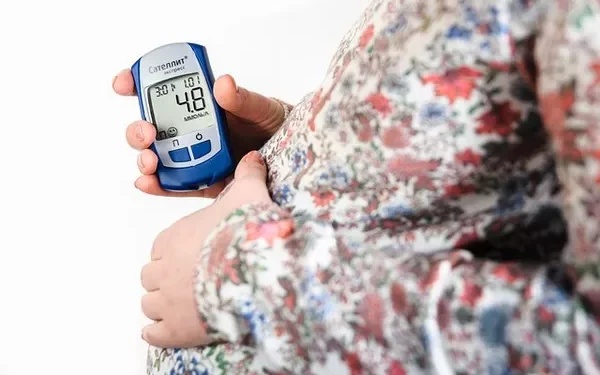Hypoglycemia, often referred to as low blood sugar, is a condition characterized by abnormally low levels of glucose (sugar) in the bloodstream. It can be a challenging condition to manage, particularly for individuals with diabetes, as it can lead to a range of symptoms, from mild discomfort to severe complications such as loss of consciousness and seizures. While hypoglycemia can be treated with medications and other interventions, dietary choices play a crucial role in preventing and managing episodes of low blood sugar. In this article, we will explore the best dietary strategies for individuals experiencing hypoglycemia.
Understanding Hypoglycemia
Before delving into dietary recommendations, it is essential to understand the underlying causes and symptoms of hypoglycemia. In individuals with diabetes, hypoglycemia often occurs as a result of excessive insulin or other glucose-lowering medications, inadequate food intake, delayed or skipped meals, increased physical activity, or alcohol consumption without sufficient food intake. Symptoms of hypoglycemia can vary but may include:
- Shakiness or trembling
- Sweating
- Palpitations
- Hunger
- Irritability or mood changes
- Confusion
- Dizziness or lightheadedness
- Weakness or fatigue
- Headache
- Blurred vision
- Seizures
- Loss of consciousness
Prompt recognition and treatment of hypoglycemia are essential to prevent complications and ensure the individual’s safety and well-being.
Dietary Strategies for Managing Hypoglycemia
Diet plays a central role in managing hypoglycemia, as the foods we consume directly impact blood sugar levels. The primary goal of dietary management is to maintain stable blood sugar levels throughout the day, minimizing the risk of hypoglycemic episodes while providing adequate nutrition. Here are some dietary strategies to achieve this goal:
Eat Regular Meals and Snacks:
Consistency in meal timing is critical for individuals prone to hypoglycemia. Aim to eat three balanced meals spaced evenly throughout the day, with snacks as needed to prevent prolonged periods without food. Skipping meals or going too long without eating can lead to drops in blood sugar levels.
Choose Complex Carbohydrates:
Carbohydrates are the body’s primary source of energy and have the most significant impact on blood sugar levels. Opt for complex carbohydrates such as whole grains, legumes, fruits, and vegetables, as they are digested more slowly and provide a steady release of glucose into the bloodstream. Avoid simple carbohydrates like sugary snacks and refined grains, which can cause rapid spikes and crashes in blood sugar levels.
Pair Carbohydrates with Protein and Healthy Fats:
Combining carbohydrates with protein and healthy fats can help slow down the absorption of glucose into the bloodstream, preventing sharp fluctuations in blood sugar levels. For example, pair whole grain toast with peanut butter, or enjoy a piece of fruit with a handful of nuts.
Monitor Portion Sizes:
While carbohydrates are an essential part of a balanced diet, consuming large portions in one sitting can lead to spikes in blood sugar levels followed by crashes. Be mindful of portion sizes and aim for balanced meals that include a mix of carbohydrates, protein, and fats.
Include Fiber-Rich Foods:
Fiber not only aids in digestion but also helps stabilize blood sugar levels by slowing down the absorption of glucose. Incorporate plenty of fiber-rich foods such as vegetables, fruits, whole grains, nuts, and seeds into your diet.
Limit Added Sugars and Refined Carbohydrates:
Foods high in added sugars and refined carbohydrates can cause rapid fluctuations in blood sugar levels and should be consumed in moderation. Opt for naturally sweetened options such as fruit or choose whole grain alternatives to refined grains.
Be Mindful of Alcohol Intake:
Alcohol can lower blood sugar levels, especially when consumed on an empty stomach or in large quantities. If you choose to drink alcohol, do so in moderation and always pair it with food to help prevent hypoglycemia.
Monitor Blood Sugar Levels:
Regular monitoring of blood sugar levels is essential for individuals with diabetes or those prone to hypoglycemia. Keeping track of blood sugar levels can help identify patterns and make necessary adjustments to diet and medication.
Sample Meal Plan for Managing Hypoglycemia
To illustrate how these dietary principles can be applied in practice, here is a sample meal plan for a day:
Breakfast:
- Whole grain oatmeal topped with sliced strawberries and a sprinkle of chia seeds
- Scrambled eggs with spinach and cherry tomatoes
- Whole grain toast with avocado
Mid-Morning Snack:
- Greek yogurt with mixed berries
- Handful of almonds
Lunch:
- Quinoa salad with mixed greens, roasted vegetables, and grilled chicken
- Whole grain roll
- Apple slices with almond butter
Afternoon Snack:
- Carrot sticks with hummus
- String cheese
Dinner:
- Baked salmon with roasted sweet potatoes and steamed broccoli
- Quinoa pilaf with sautéed mushrooms and onions
- Mixed green salad with balsamic vinaigrette
Evening Snack:
- Cottage cheese with pineapple chunks
- Whole grain crackers
See also:Why Do I Get Hypoglycemia At Night
Conclusion
Diet plays a crucial role in managing hypoglycemia, and making informed dietary choices can help prevent episodes of low blood sugar and maintain stable blood sugar levels throughout the day. By prioritizing complex carbohydrates, balancing meals with protein and healthy fats, and being mindful of portion sizes, individuals can effectively manage hypoglycemia while enjoying a varied and nutritious diet. As always, it is essential to work with a healthcare provider or registered dietitian to develop a personalized meal plan that meets individual needs and preferences while addressing any underlying medical conditions. With proper dietary management and monitoring, individuals can successfully navigate hypoglycemia and achieve optimal health and well-being.
Related topics:
Why Do You Get Tachycardia With Hypoglycemia

























